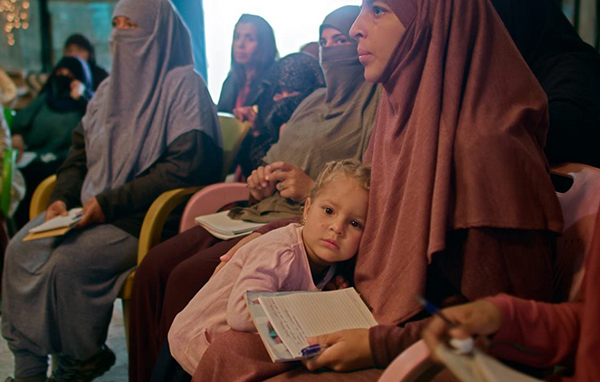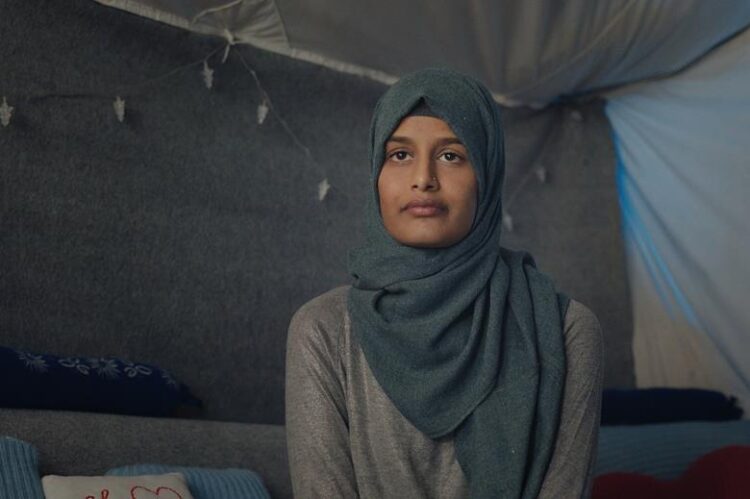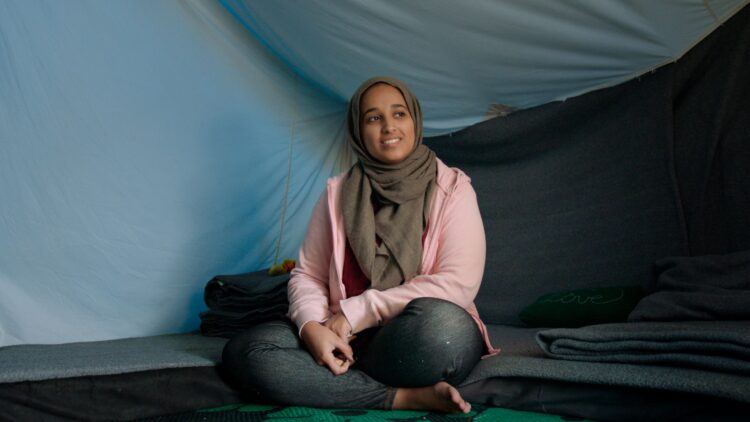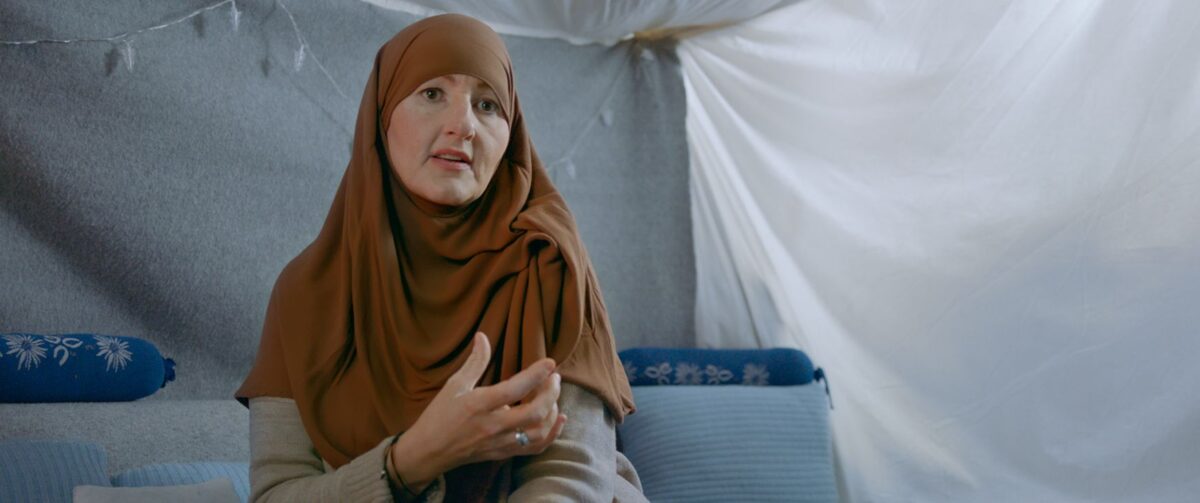Sixty four thousand women and their children are stranded in a bleak refugee camp in an area of northeastern Syria controlled by Kurdish militias. The wives of Islamic State fighters who were either killed in battle or imprisoned after being captured, they yearn to go back to their homes, but their governments have banned them from returning.
Alba Sotorra Clua’s film, The Return, documents their plight. It will be screened online by the Canadian International Documentary Festival (Hot Docs), which opened on April 29 and runs until May 9.
It’s clear why these women are so desperate to leave the camp, a sprawling encampment of flimsy tents in the middle of nowhere in a country torn by a long-running civil war. As one of them says, “We cannot stay here. It is not an option.”

That may be true, but for now, they have no alternative but to remain in the camp, where conditions are harsh. Painting an empathetic picture of their predicament, Clua interviews several of them.
Shamima and Hoda are from Britain and the United States. Kimberly and Nowal are from Canada and Holland. Western-born-and-bred, they were fooled by the false or misleading promises of Islamic State, a radical organization which proclaimed a caliphate in Syria and Iraq in 2014, only to lose it to Western forces several years later. The Return unfolds against the backdrop of Islamic State’s military defeat in Syria and Iraq.

Shamima, describing herself as the black sheep of her family, left her parents’ home at the age of 15 without even informing them. Within a short time, she was married off to an Islamic State fighter, who fathered her three children. Claiming she has no knowledge of Islamic State crimes and atrocities, she begs for a second chance. Britain, in line with British public opinion, has been impervious to her pleas to return.
Hoda, the daughter of a former Yemenite diplomat based in the U.S., thought she could improve her frayed relations with her mother if she became religious. After finishing college, all she could look forward to was an arranged marriage, a prospect which depressed her. She contacted Islamic State through social media, and like Shamima, she was soon a bride and a mother. Thoroughly disillusioned by her experiences in the caliphate, Hoda says, “It was hell on earth.” Hoda says she left Islamic State after watching her hungry daughter eating grass.

Kimberly appears to be the oldest in the group. “I should be going home,” she says. “I never harmed anyone.”
“I learned how evil and manipulative people can be,” she adds without elaboration.
Nowal believed that the caliphate would offer her a better life, but quickly discovered that it was little more than a dictatorship. Women were told how to think, behave and dress, and they had no access to the internet. Single females were bought and sold at special markets like chattel, and girls as young as nine were allowed to get married.
These are sad, disillusioned women, and they are paying a heavy price for their naivety and ignorance.
